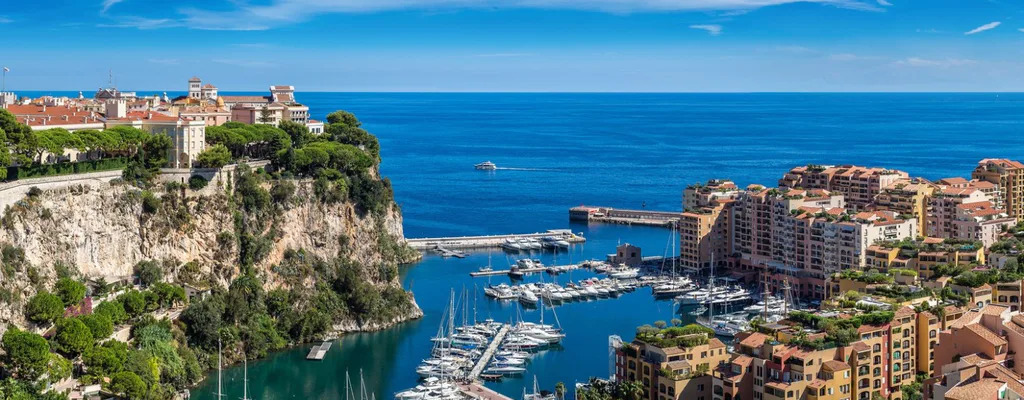10th ANNIVERSARY OF THE PRINCE ALBERT II OF MONACO FOUNDATION IN GERMANY
by Marina Orhei
MONACO. The Prince Albert II of Monaco Foundation in Germany celebrated ten years by organizing the symposium “Climate change – A challenge for entrepreneurs and investors”, in the presence of H.S.H. Prince Albert II of Monaco, Wednesday 4 December at 4.30 pm, at the Hasso Plattner Institute of Potsdam.

Program: 4:30 pm: Key note by HSH Prince Albert II of Monaco
Keynote lecture Prof. Dr. Ottmar Edenhofer, Director of the Potsdam Institute for Climate Research.
Panel Participants: Prof. Dr. Michael Otto, Foundation 2° – German entrepreneurs for climate protection; Prof. Klaus Josef Lutz, CEO of BayWa AG; Carsten Quitter, Allianz Chief Investment Officer; Cordula Ströher-Goldenbow, Family Office for value-oriented investment strategy
Moderation: Susanne Bregy, Rhodanus Capital Ltd.

At 7 pm, at the Barberini Museum, there had been a reception followed by a dinner. A contribution of 350€ per person was requested for participation in projects of the Foundation, with the exception of officials and representatives of foundations.
Heat waves, floods, cyclones… for years the effects of climate change on our natural environment have become increasingly apparent. Scientists agree that human activity generating huge greenhouse gas emissions have sped up global warming. The increase in the planet’s temperature, estimated at between 2°C and 6°C during the 21st century will have unprecedented consequences, which are still largely unforeseeable.
The Climate and Energy Plan in the Principality
A clearly stated action to combat climate change and to ensure energy security for the country
At the initiative of H.S.H. the Sovereign Prince, the Government actions a decisive sustainable development policy aimed at achieving full compliance with the Principality’s undertakings, in particular with the Kyoto Protocol. This intention is expressed through local initiatives on Monegasque territory and through cooperation work in developing countries.
In line with the provisions of the Kyoto Protocol, Monaco has set itself the target of improving energy efficiency by 20% and achieving 20% of final energy consumption from renewable sources by 2020.
To this end, the deployment of the Climate and Energy Plan includes technical, regulatory, financial and awareness-raising campaigns.
The objective of the Climate and Energy Plan is to combat climate change and adapt the territory to these changes, with an approach based on sustainable development. The aim is to build a territory that is resilient, robust and adapted, to the benefit of the population and its businesses.

Carbon neutral by 2050
During His participation at the 15th United Nations Climate Change Conference in 2009 in Copenhagen, H.S.H. the Sovereign Prince unveiled new directions for the Principality.
Monaco will take part in efforts to stabilise the global warming of the planet by reducing its greenhouse gas emissions by 30% in 2020 and 80% in 2050 (by which time the Principality will be carbon neutral) with respect to the reference date of 1990.
In 2015, as part of the 21st United Nations Climate Change Conference, the Principality announced an interim target of reducing greenhouse gases by 50% by 2030 compared to 1990.
Monaco is actively working on regulating the use of new ways of commuting such as electric scooters, e-bikes, gyropodes, etc., to safeguard the wellbeing of residents and visitors alike. As micromobility increases, cities need to optimize their infrastructure, including dedicated lanes and parking space, as well as imposing proper usage rules to avoid accidents. The objective is a harmonious cohabitation with public transportation, cars and specially pedestrians.
As for Germany, the German Climate Action Plan 2050 (German: Klimaschutzplan 2050) is a climate protection policy document approved by the German government on 14 November 2016. The plan outlines measures by which Germany can meet its various national greenhouse gas emissions reduction goals through to 2050 and service its international commitments under the 2016 Paris Climate Agreement. The Federal Ministry for the Environment, Nature Conservation, Building and Nuclear Safety (BMUB), under minister Barbara Hendricks, led the development of the plan. Germany’s 2030 climate targets stipulate a reduction of greenhouse gas levels by 55 percent compared to 1990 levels, which means carbon emissions have to fall from about 866 tonnes in 2018 to 563 million tonnes at the end of the next decade. The 2020 goal to reduce emissions by 40 percent has practically come out of reach, with the environment ministry expecting a reduction by roughly 32 percent in its latest emissions projection report. The document says that Germany’s climate targets mean “a change of our way of living and running the economy” and stresses that supporting the transition to clean energy generation and low-emission technology brings “great opportunities for Germany as a country of business, innovation and jobs.” The government argues that investments under the programme will ultimately spare Germany high costs resulting from climate mitigation and adaptation as well as from buying emissions allowances from abroad. “The 2020s will be the decade of resolute implementation of the energy and mobility transition.”

Empfang im Museum Barberini in Potsdam am 04.12.2019
Foto: BrauerPhotos / J.Reetz





